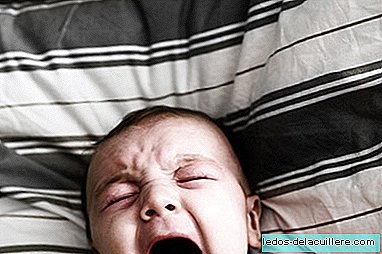
Following the death of 11 babies in Holland, after participating their mothers in clinical trials with Viagra, we were interested to know what does the European regulations on these studies in pregnant women. And more specifically, Spanish regulation.
Because ... do the benefits that can be obtained by trying a new drug really deserve the risk? In this particular case of Holland, it seems that it is not. Viagra was given to future mothers to solve a problem of growth of the fetus and the result was that it affected the lungs of the babies.
The process to follow to carry out a clinical study is completely transparent and regulated. But as for the convenience of using or not in pregnant and nursing mothers It is practically a decision of the researchers, as can be seen in the existing legislation. But let's go in parts. First let's see what the objective of these studies is.
What is a clinical trial?
This is a medical research conducted on people, who participate voluntarily in these studies, in order to discover better ways to treat, prevent, diagnose and understand diseases that affect the human being.
They can be used to test the effectiveness of new medications or to compare existing treatments and determine which one is better.
Before conducting human trials, other safety and efficacy studies are carried out in the laboratory and, if an appropriate therapy is considered, the research continues and clinical trials are carried out with people.
Each and every one of the clinical trials that are carried out must be governed by a protocol describing the plan that will follow said study, that is, how it will be done and why it is necessary to develop it, inclusion and exclusion criteria for participants, among others. You should also indicate what phase of the study you are in (one to four).
Here in Spain
In our country, this kind of research is governed by Royal Decree 1090/2015, of December 4, which regulates clinical trials with medications, the Ethics Committees of Drug Research and the Spanish Registry of Clinical Studies .
According to the Ministry of Health, this Royal Decree served to simplify the procedures necessary to carry out clinical trials and thus attract research with medicines in Spain, equating the European regulation. In addition, it also granted a more active role for patients in making decisions that affect them since, for the first time, they are mandatory included in the Ethics Committees, essential to approve or not a clinical trial.
In Spain the registration or commercialization of a new drug is not allowed without previous clinical studies that demonstrate its effectiveness and safety for its use. Therefore, clinical research is necessary and in some cases mandatory.
And what laws about pregnant women? It only refers specifically to trials in pregnant women in its article 8, where it says that:
“A clinical trial may only be carried out with pregnant or breastfeeding women if, in addition to the conditions established in articles 3 to 6 of this royal decree, all the conditions listed in article 33 of Regulation (EU) n. No. 536/2014 of the European Parliament and of the Council, of April 16, 2014. ”
We then review articles 3 and 6 of this Royal Decree and verify that they have a general character for all possible participants in any study. Exclusively they are ethical requirements, data protection and informed consent. That is, it establishes that to carry out the test, participants must give their express consent and the data collected may only be disclosed if they accept it, and from anonymity. They are identical to those of the European Union.
Among them, two points related to the tragic event in Holland:
"The expected benefits for the subject of the trial or for public health justify the foreseeable risks and inconveniences, and compliance with this condition is constantly monitored. However, the rights, security, dignity and well-being of the subjects prevail over any other interest. "
"The access to the usual clinical practice for their pathology will be communicated to the person participating in the trial, particularly in the case of people with special vulnerability."

European Union Regulation
Immediately after, we look for Regulation (EU) No. 536/2014 of the European Parliament, referred to in the Spanish decree. And, specifically, we read article 33, the only one referring to pregnant women. There the necessary conditions are established to carry out a clinical trial of future mothers and infants:
Essay must produce a direct benefit for the pregnant woman or affected infant, or its embryo, fetus or child after birth, that exceeds the risks and burdens involved.
That the study cannot be carried out, with the same efficacy, in women who are not pregnant or breastfeeding.
That the research contributes to the achievement of results capable of benefiting other pregnant women, infants, other embryos, fetuses or children, or in cases related to reproduction.
That involves a minimal risk for the pregnant woman or during breastfeeding, your embryo, fetus or child after birth.
When research is done on women who are breastfeeding, special precautions must be taken to avoid damaging the baby's health.
That there are no economic incentives, except compensation for expenses and loss of earnings directly related to participation in the clinical trial.
What if something goes wrong?
Spanish (and also European) legislation determines that volunteers must receive compensation in the event that they suffer damages due to the clinical trial.
Specifically, Royal Decree 1090/2015, of December 4, devotes its chapter III, articles 9 and 10, to explain compensation for damages. It states that:
Those responsible for ensuring that clinical studies meet the requirements are the Ethics Committees for Drug Research (Ceim), composed of health professionals (doctors, nurses and pharmacists), but also experts in law and bioethics and at least “one member lego, oblivious to biomedical research or clinical assistance, which will represent the interests of the patients ”.
In addition, the directors of the study are obliged to communicate the suspicions of adverse or unexpected effects of the drugs studied to the Spanish Agency for Medicines and Health Products (AEMPS), as well as to publish the results, whether they are positive or negative.
In Spain, the Law on guarantees and rational use of medicines and health products requires the hiring of a liability insurance, or the constitution of another financial guarantee, for the realization of a clinical trial, with the purpose of guaranteeing the coverage of the damages that could occur in the people who participate in said trial.
These measures only comply with Regulation (EU) No. 536/2014 of the European Parliament on clinical trials (already referred to previously), which in its point 62 states that:
"Member States must ensure the existence of compensation mechanisms for damages that a test subject may suffer as a result of their participation in a clinical trial conducted in their country".
The Spanish Society of Clinical Pharmacology explains what the insurance of clinical trials with medications consists of.
The ethical reasons that justify the existence of insurance to cover the damages suffered by the patient due to their participation in a clinical investigation are very clear:
If a person suffers a damage attributable to their participation in the investigation and that they would not have suffered if they were not there, it is considered fair, due to their contribution to the knowledge generated by the investigation (which should be considered as a public good ), is attend you medically for free and compensate you financially for the impairment of your health.
The promoter of the trial is responsible for the purchase of insurance that covers damages., at the same time as the responsibilities that could be incurred by the promoter, the principal investigator and his collaborators.
It is considered a very serious offense to breach the obligation to sign an insurance, guarantee or equivalent financial guarantee.
All expenses derived from the impairment in the health or physical condition of the person undergoing the clinical trial will be subject to compensation, as well as the economic damages that derive directly from said impairment, provided that this is not inherent in the pathology under study or the evolution of his illness as a result of the ineffectiveness of the treatment.
As an additional guarantee for the participants, it is presumed that the damages that affect your health during the realization of it and during the period of one year counted since its completion, they have occurred as a result of the trial.
Royal Decree 1090/2015 establishes that the minimum amount to be guaranteed as a liability will be € 250,000 per person underwent clinical trial.
It also allows to hire a maximum insured capital per clinical trial and annuity of 2,500,000 euros. That is to say, if the sum of all the indemnities recognized to all those affected by the same trial in a year exceeds 2,500,000 euros, the insurance company will not be obliged to pay above that amount, prorating the limit amount among all the affected.
Spanish and European legislation determines that volunteers must receive compensation in case they suffer damages due to the clinical trial.In Babies and More State Pact against Gender Violence: we summarize the main measures in favor of women and their children, 11 positions to breastfeed and achieve successful breastfeeding, what is yours?












